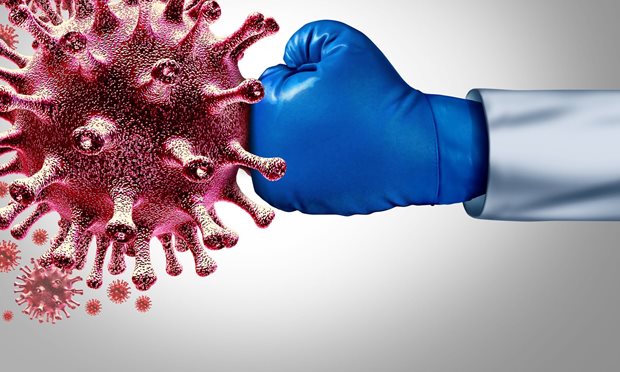

About trained immunity
The innate immune system has a memory. Treatments that inhibit or stimulate this so-called trained immunity offer great opportunities for infectious diseases, cancer and autoimmune diseases. read moreAbout trained immunity
The innate immune system has a memory. Treatments that inhibit or stimulate this so-called trained immunity offer great opportunities for infectious diseases, cancer and autoimmune diseases.
The human immune system is both janitor and security guard of your body: it cleans up defective cells and keeps out unwanted intruders, such as toxins, viruses and bacteria. The system consists of two layers:
- When a threat is first detected, the innate immune system immediately activates with a series of generic, short-term measures;
- If the threat persist, the adaptive immune system steps in after a couple of days with measures targeted specifically at the threat.
For well over a century, we have known that the adaptive immune system can remember and learn. After successfully fighting off a disease, your adaptive immune system is able to recognize it and combat it more effectively in the future. This is the principle behind traditional vaccines, which contain weakened viruses that act as training dummies for your immune system.
Trained immunity
Less well known is the fact that the innate immune system, too, has a memory. Over the years, various scientists have observed that a vaccine made for a specific disease can help protect against other, unrelated diseases. For example, a study in Guinea-Bissau showed that after a BCG vaccination for tuberculosis, the number of respiratory infections among children decreased. Mortality among vaccinated newborns was nearly 40 percent lower than that of unvaccinated babies.
The underlying mechanism of this phenomenon wasn’t understood however, barring the way to clinical application. This all changed a few years ago, when researchers at Radboudumc figured it out. The group, led by Mihai Netea, discovered that the BCG vaccine increased the production of cytokines - proteins that regulate immune cells - for up to three years. They called this memory function of the innate immune system trained immunity. The discovery earned Mihai the Spinoza Prize.
Collaboration opportunities
Trained immunity is a relatively young field that exists for about ten years now. The principle has been researched and proven in a multitude of studies, and some generic applications have already found their way into medical practice. The use of vaccines as adjuvant therapy for unrelated diseases is the most prominent example of this.
The main promise of trained immunity lies in targeted therapies. With a targeted, possibly even personalized approach, it will become possible to regulate the innate immune system to deal with specific circumstances. For these kind of applications, more research is necessary. In particular, we need to better understand the workings of the (innate) immune system at a molecular level.
It will likely take another ten years before new therapies based on trained immunity become available to patients. Radboudumc is always interested in meeting potential scientific and industry partners that may help bring this future closer. If you have an idea or proposal that you’d like to discuss with us, please contact [link naar contactformulier] our trained immunity team.
Collaboration in action: BioTRIP
Radboudumc and Eindhoven University of Technology have jointly established BioTRIP, an independent biotech incubator. BioTRIP combines trained immunity know-how developed at Radboudumc with the nanobiologics expertise of Eindhoven University of Technology
Nanobiologics are tiny delivery vessels composed of our own body’s own molecular building blocks. They are a key emerging technique for regulating the innate immune system. Using nanobiologics, it’s possible to influence the immune system at its very core, by training myeloid cells in the bone marrow.
BioTRIP brings together biomedical engineers, clinicians, immunologists and biotech professionals to establish, translate and commercialize sophisticated novel immunopharmaceutical strategies.
News
-
Mihai Netea internist
-
Leo Joosten full professor mechanismen van ontstekingsziekten









